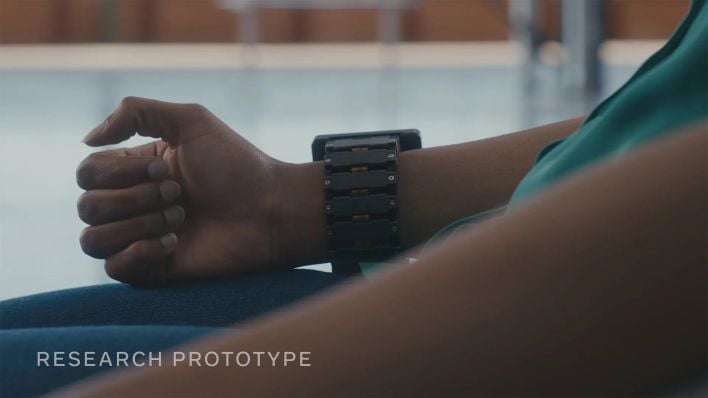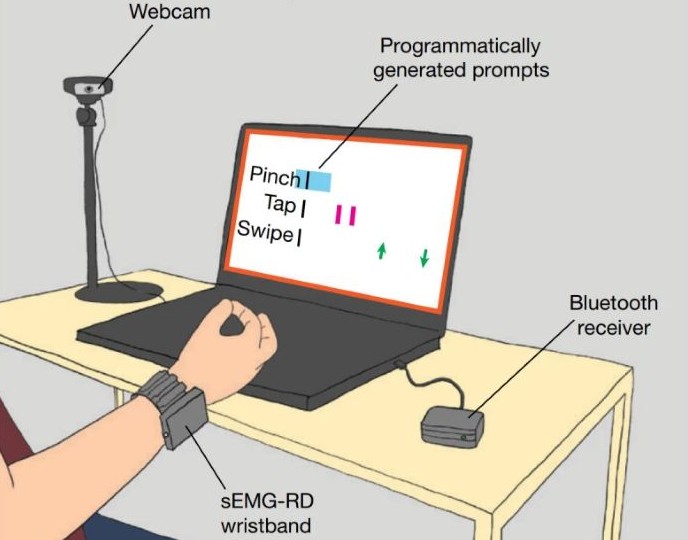Published research from
Meta's Reality Labs has revealed a unique combination of augmented reality (AR) glasses and a wrist-based control band. This technology, detailed in the Nature publication, allows users to interact with content via hand gestures and even thought, minus the need for bulky equipment.
The centerpiece of this research is Orion, which is a set of prototype AR glasses that defy bulky, headset-like designs, and instead look much like a contemporary pair of eyeglasses. Orion is packed with microLED projectors that beam holographic displays directly into the user’s field-of-view. This is unlike
virtual reality setups, where you are totally enveloped by a digital landscape: Orion's transparent lenses allow for natural eye contact and enhanced situational awareness.

The real innovation, though, lies in how users interact with Orion. Instead of a clunky controller or distracting hand gestures, Meta has developed a wristband that uses surface electromyography (sEMG). This non-invasive device is capable of detecting the minute electrical signals that travel from the brain to the muscles in the wrist and hand. When it decodes these signals, the device can translate a user's intention to move their fingers into commands, allowing them to swipe, click, and type in the air without any visible physical movement.
Of course, machine learning and artificial intelligence have a big role in this, which are trained on vast datasets to interpret these subtle muscle signals. The end result is a responsive control system that could revolutionize how users engage with technology all while their hands remain comfortably at their side or even in their pockets.
Potentially one of the biggest beneficiaries of Meta's findings would be accessibility. For individuals with motor disabilities, conditions like hand tremors, and maybe even missing digits, the EMG wristband could be a life-changing tool. Company research has shown that participants who are unable to produce overt hand movements can still generate muscle signals that the system can use to control a virtual hand or navigate an interface.
For now, the
Orion AR glasses and the EMG wristband are still in the prototype phase, although the tech definitely shows promise (a Quest Touch Plus replacement, anyone?), especially for folks who'd rather not have their
brains cut open. Meta hasn't provided a release date, price, or even a final name for the wristband yet.
Photo credits: Meta Reality Labs



